HBsAg - analysis for hepatitis B antigens
Hepatitis B surface antigen or HBsAg also referred to as "Australian antigen", Hepatitis B surface antigen. Its presence in human blood is an indicator of the acute or chronic course of hepatitis B. The antigen is located on the surface of the virus and is a protein.
To detect hepatitis B, the surface antigen can be detected early - as early as 10-12 days after the alleged infection. This is important since the incubation period of this disease reaches 6 months and can be asymptomatic, turning into a chronic form.
The HBsAg antigen is not always present in the blood. It can be detected within 5-6 months, then it disappears. The presence of an antigen in the patient's blood for more than six months is a signal that the disease has become chronic. A negative test result does not guarantee that the Hepatitis B virus is not present in the body. If the result is positive during the test for antibodies to the antigen, then the person received immunity during vaccination or has had hepatitis B.
When to get an HBsAg test
There is a list of criteria that require a patient to be sent for research. In addition to patients with a confirmed diagnosis, there are so-called risk groups. It is also a mandatory procedure for donors and recipients of blood, its components, people with cancer, patients on hemodialysis, or undergoing treatment with immunosuppressants after transplantation.
For people diagnosed with hepatitis B, the test allows you to:
- control chronic disease;
- to investigate the effectiveness of the therapy;
- monitor for the presence of infection in the absence of symptoms.
HBsAg analysis also confirms the development of immunity after the use of the vaccine. It will also reveal the acquisition of immunity after asymptomatic transmission of infection.
The study is prescribed, including if a person has no signs of hepatitis B, but the activity of liver enzymes (ALT and AST) is increased for no objectively observable reasons.
The hepatitis B virus most often enters the human body from a carrier or a chronically ill person. Cases of infection from patients in acute form - only 4% -6%. The main routes of infection transmission are through body fluids, blood, and semen. There is also a household infection option, when personal hygiene products, razors, and manicure accessories are used together with the carrier. The virus can be transmitted from mother to child - during gestation, childbirth, through cracked nipples during feeding.
Service Description
You can do an HBsAg test, in the direction of your doctor or after consultation with a specialist from our clinic in Ukraine. The test is focused on studying the dynamics in the treatment of the patient, as well as confirming or refuting the hypothesis of infection with viral hepatitis B.
- surgeon;
- oncologist;
- infectiologist;
- general doctor;
- obstetrician-gynecologist;
- hepatologist;
- therapist.
In the Dobrobut MC clinic in Kyiv, blood is taken from a vein, after which blood serum is isolated. HBsAg – hepatitis B surface antigen is determined by enzyme-linked immunosorbent assay (ELISA) and Immunochemiluminescent (ICLA).
How is the study going
The patient must come to the laboratory from 8 to 12 hours. This is the time interval recommended by experts. Venous blood must be taken on an empty stomach, the minimum interval after the last meal is 4-6 hours. You can drink water, but without sugar and gas.
It is recommended to arrive 15-20 minutes in advance. You need to calm down, restore your breath. Do not smoke for at least 1 hour before the examination.
The day before blood donation:
- give up physical activity, hard work;
- exclude heavy food, alcohol and fast food from the diet.
If before the study you did an ultrasound, underwent physiotherapy, did a fluorography or X-ray, postpone the study for a couple of days.
Specificity of HBsAg tests - qualitative test
Immunoenzymatic (ELISA) and Immunochemiluminescent (ICLA) analyzes are characterized by specificity and sensitivity of 90%. The methods are based on immune reactions of an antigen with an antibody.
In ICLA, chemical components are used that, during a chemical reaction, generate light radiation. Immunochemiluminescent analysis can be both quantitative and qualitative. A special analyzer and a set of reagents are used for the study.
Enzyme immunoassay - based on the "antigen-antibody" reaction. Enzymes that bind antigens and antibodies are placed on the prepared chromogenic substrate. Their interaction is recorded by the physicochemical method - for example, spectrophotometry, fluorometry.
If we compare these 2 methods, then ICLA has a higher sensitivity than enzyme immunoassay. However, the reagents used for it are more expensive, therefore, the price for HBsAg will be higher. Plus, in the case of immunochemiluminescent analysis, the process is fully automated, which eliminates errors associated with the human factor. Which analysis is more preferable, the attending physician decides, depending on the clinical picture and concomitant factors that affect the interpretation of the results.
Results of a blood test for HBs antigen, formulations
It is necessary to interpret the obtained results in conjunction with other studies. Only a competent doctor can make a correct conclusion on the analysis of HBsAg, taking into account all the information received on the patient. If for some reason you doubt the conclusion of your specialist, you can get advice from an independent expert at the MC clinic “Dobrobute”.
- Negative result - if the indicator is less than 0.05 IU / ml;
- from 0.05 IU / ml and above - is considered positive.
If a positive result is obtained, the laboratory assistant rechecks. An immunoinhibition test is used, which is carried out twice. If the result remains positive, the conclusion on the test is described by the wording - HBsAg (confirming) - "positive".
However, sometimes the patient may see another wording in the conclusion - "the result is repeatedly positive, unconfirmed." This means that non-specific interferences of the components were observed in the blood serum. So, after some time, the test will have to be repeated.
Results may be confounded in patients on heparin therapy and those receiving murine monoclonal antibodies (HAMA) preparations. In such cases, both a decrease and an increase in results can be observed. To avoid such errors, blood samples should be taken before the start of such therapy or diagnosis.
How to sign up for HBsAg analysis, the price at the Dobrobut MC clinic in Kyiv
Hepatitis B is an insidious disease that can affect anyone. If your doctor has directed you to donate blood for HBsAg, use the laboratory of our clinic. Specialists of MC "Dobrobut" in Ukraine will take blood in comfortable conditions, quickly, painlessly, and very tactfully. To get a consultation and make an appointment for analysis, you just need to call or fill out the callback form on the website. Please arrive at the agreed time, bringing your doctor's referral and proof of identity.
You can find out if you have hepatitis B surface antigen in 2 days - the day of blood sampling and the next - expect the result of the study.
Bibliography
- Супрун, К. С., Сілаєва Л. Ф.. Сучасний стан лабораторної діагностики гепатиту В. (2020).
- Wang K, Huang G, Chen Y, Wang Y. Hepatitis B Surface Antigen (HBsAg) Kinetics in Chronic Hepatitis B Patients during Peginterferon Treatment. Med Sci Monit. 2020;26:e921487. Published 2020 Jun 26.
- Wilkins, Thad, Richard Sams, and Mary Carpenter. Hepatitis B: screening, prevention, diagnosis, and treatment. American family physician 99.5 (2019): 314-323.
- Motruk, D. Уніфікований клінічний протокол первинної, вторинної (спеціалізованої), третинної (високоспеціалізованої) медичної допомоги. Вірусний гепатит В у дорослих (вибрані положення). Ліки України 5-6 (221-2) (2018): 15-20.
- Hossain MG, Ueda K. Investigation of a Novel Hepatitis B Virus Surface Antigen (HBsAg) Escape Mutant Affecting Immunogenicity. PLoS One. 2017;12(1):e0167871. Published 2017 Jan 3.
- Amini, Ali, et al. Diagnostic accuracy of tests to detect hepatitis B surface antigen: a systematic review of the literature and meta-analysis. BMC infectious diseases 17.1 (2017): 19-37.
Our advantages
Our services
Our doctors
Choose the nearest clinic to you
ISO certificates
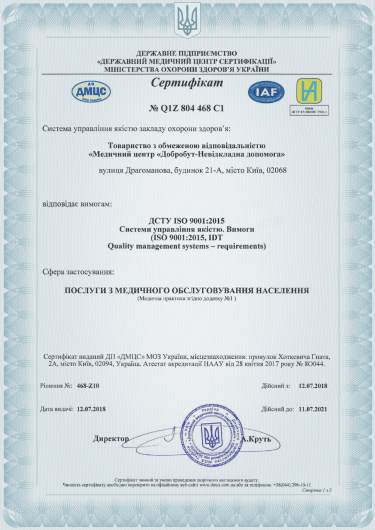
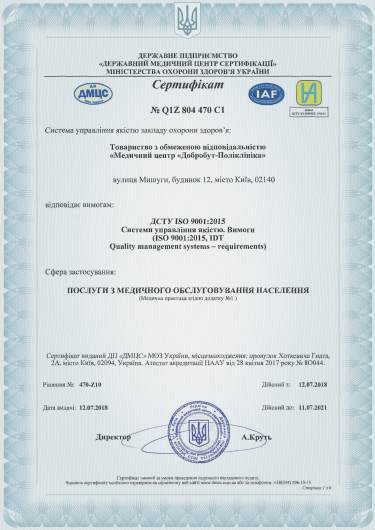
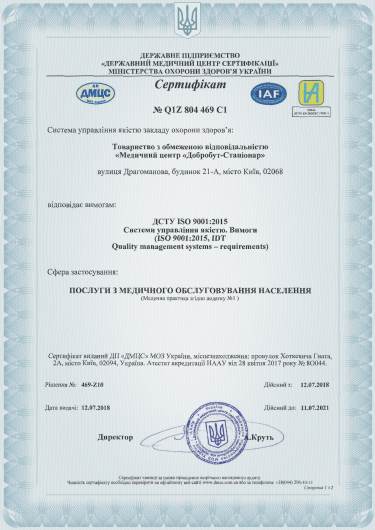
Accreditation certificates
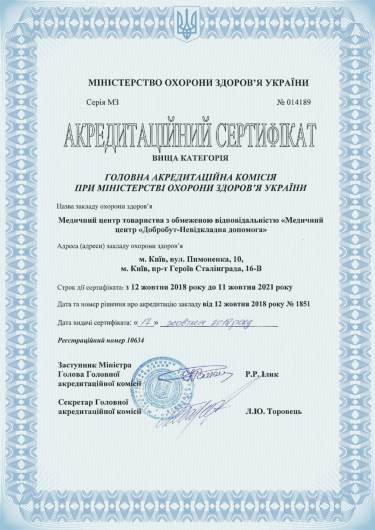
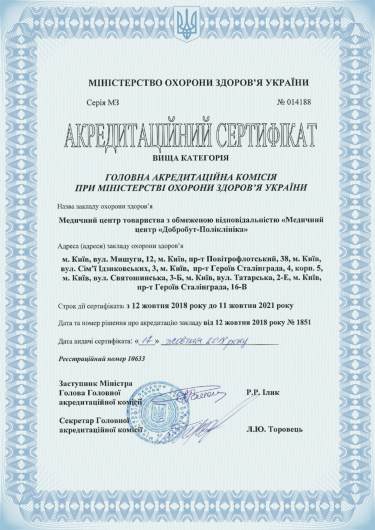
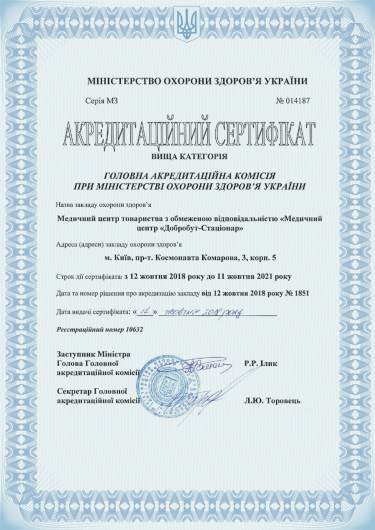
Medical practice licenses
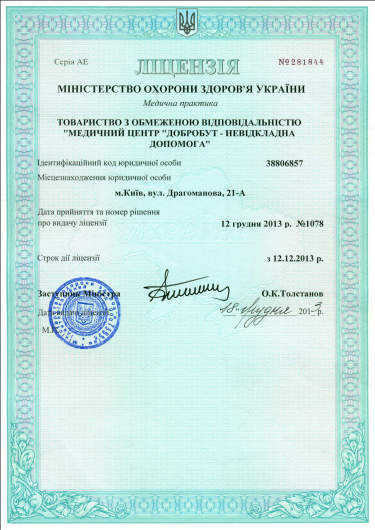
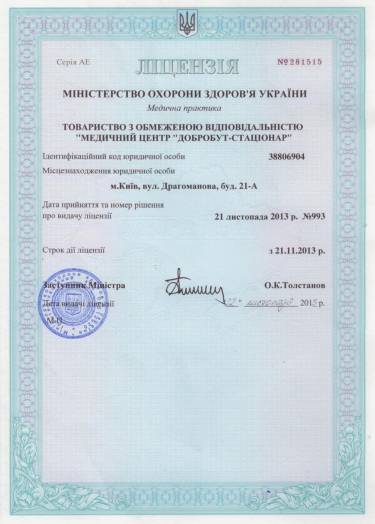
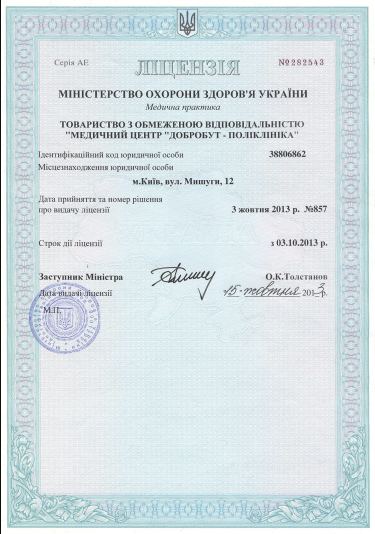
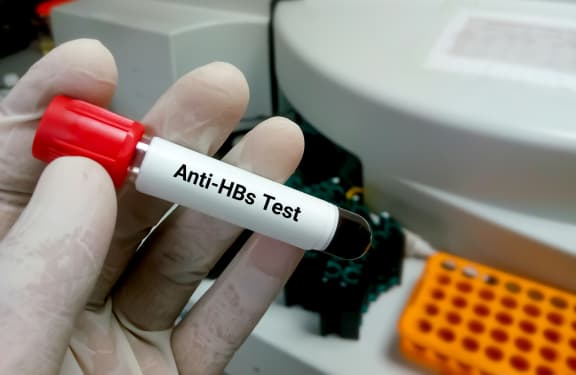









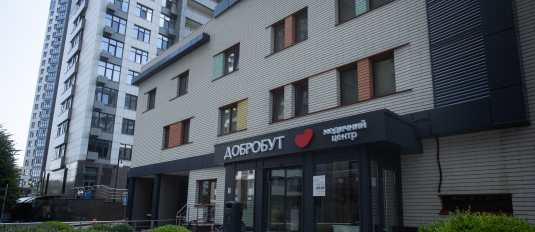


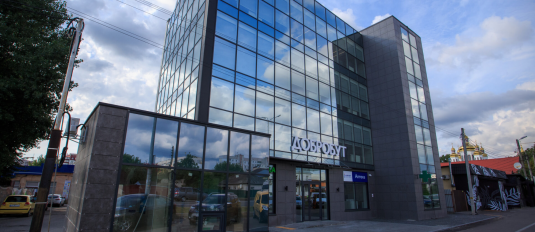

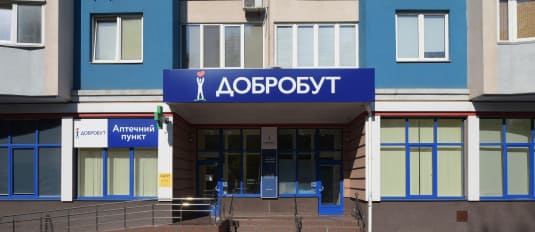







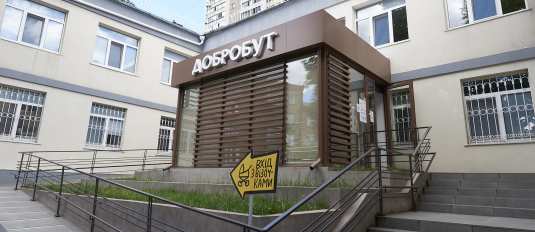
@2x.png)
@2x.png)
%402x.png)
%402x.png)
